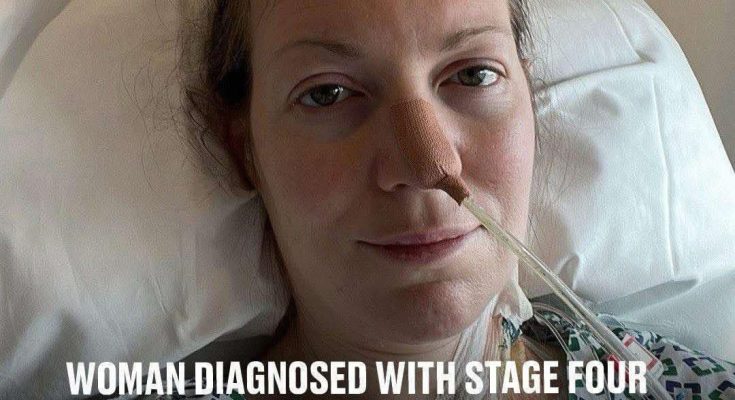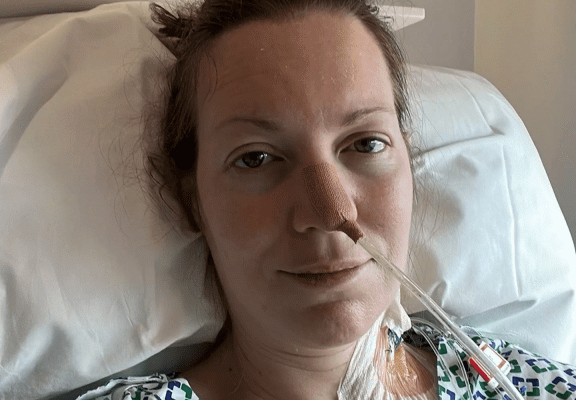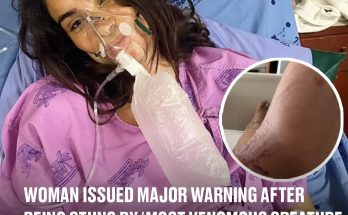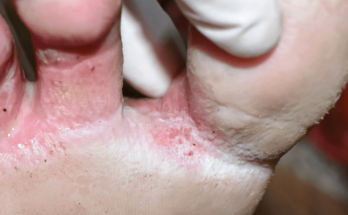A Shocking Diagnosis That Changed Everything
Georgie was like most 28-year-olds—busy, driven, and a bit overwhelmed by life’s demands. When she noticed certain changes in her body, she attributed them to stress or lifestyle factors. Visiting the doctor seemed unnecessary and, in her words, a waste of time. However, the symptoms persisted and worsened, eventually leading to a diagnosis that no one at her age anticipates: stage 4 Hodgkin lymphoma.
Hodgkin lymphoma is a type of cancer that affects the lymphatic system, which plays a vital role in our immune defense. Unfortunately, Georgie’s cancer had already advanced, bringing along significant physical and emotional challenges, including early menopause.
Let’s explore the three symptoms she experienced before her diagnosis—symptoms that could easily be mistaken for something far less severe.
1. Persistent Itchy Skin That Wouldn’t Heal
One of the earliest signs Georgie experienced was unbearable itchiness, primarily on her legs. “I would itch until I broke the skin,” she shared. The discomfort was so intense that it kept her awake at night.
Doctors initially believed the itchiness was caused by stress, allergies, or a condition like urticaria (hives). However, no creams or lifestyle adjustments brought relief. This persistent itchiness, which didn’t respond to traditional treatments, was an early red flag—one that could have pointed to underlying health concerns.
Itchy skin is often overlooked or dismissed as a minor irritation, but in rare cases, it can signal systemic issues, including cancer.
2. Night Sweats That Soaked Through Bedding
Another symptom Georgie experienced was severe night sweats. These weren’t just mild discomforts—they were intense episodes that left her drenched. Night sweats are a common symptom associated with Hodgkin lymphoma, often due to the body’s immune response to cancer cells.
For Georgie, these episodes became frequent, yet she brushed them off as a side effect of being overly tired or stressed. Many people make similar assumptions, but night sweats—especially those that occur without a fever or other illness—deserve a closer look.
3. Unexplained Fatigue and Weight Loss

Chronic fatigue is something many of us experience in today’s fast-paced world. Georgie felt constantly exhausted, but she chalked it up to her busy lifestyle. At the same time, she began losing weight without trying.
Fatigue and unintentional weight loss are classic warning signs of many cancers, including lymphoma. They occur because the body is expending energy fighting the disease. Georgie’s endless cycle of colds and flus also hinted at a compromised immune system, another subtle clue that something was wrong.
Why These Symptoms Are Often Missed
What makes these symptoms particularly dangerous is their subtlety. Persistent itching, night sweats, and fatigue can easily be explained away by stress, allergies, or overwork. Even healthcare providers may initially attribute these symptoms to more common issues, as was the case with Georgie.
Unfortunately, this tendency to dismiss symptoms can delay diagnosis, allowing the disease to progress. Georgie’s story emphasizes the importance of advocating for your health and seeking medical advice if something feels off.
The Emotional Toll of Early Menopause
In addition to her cancer diagnosis, Georgie faced another life-altering challenge: early menopause caused by treatment. At just 28, she lost her fertility before having the chance to start a family.

Describing the experience as “being hit by a bus,” Georgie struggled to find peers who could relate. “None of my friends understood what I was going through,” she explained. The emotional toll was immense, compounded by the physical changes brought on by menopause.
This aspect of her journey highlights an often-overlooked consequence of cancer treatments—one that deeply affects young women.
Raising Awareness and Advocating for Early Detection
Now 32, Georgie is sharing her story to encourage others to prioritize their health. She stresses the importance of recognizing subtle symptoms and seeking medical attention, even if you think it’s “not a big deal.”
Her brave advocacy aims to shed light on Hodgkin lymphoma, its symptoms, and the broader impact of cancer on mental health and quality of life.
Key Takeaways from Georgie’s Story
- Listen to Your Body: Unexplained symptoms like persistent itching, night sweats, and fatigue should never be ignored.
- Advocate for Yourself: Don’t hesitate to seek a second opinion if something doesn’t feel right.
- Support Matters: Navigating cancer and its aftermath is challenging, and having a strong support system can make a world of difference.
Conclusion
Georgie Swallow’s journey is a testament to the importance of paying attention to the signs our bodies give us. Her overlooked symptoms—itchy skin, night sweats, and fatigue—serve as a powerful reminder that even seemingly minor issues can have serious underlying causes.
By sharing her experience, Georgie hopes to inspire others to take their health seriously and seek timely medical advice. Her courage and advocacy are paving the way for greater awareness of Hodgkin lymphoma and the broader challenges faced by young cancer patients.
Your health is your most valuable asset—never hesitate to protect it.




